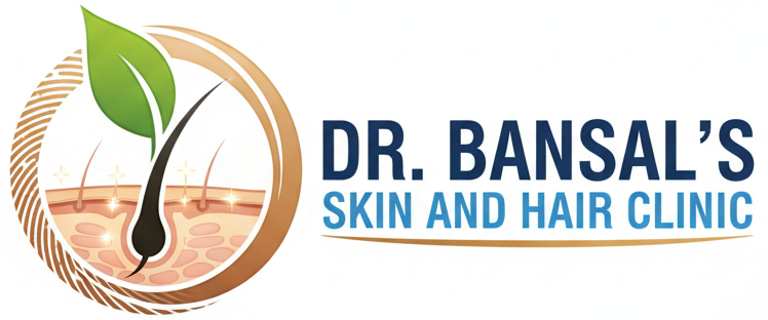Hair Loss Treatment In Indore
Dr. Bansal's Hair Clinic, Indore
Alopecia, or hair loss, is the partial or total loss of hair from the scalp and/or other body regions. It may be:
Temporary factors: for example, stress, hormonal changes
Progressive (e.g., male or female pattern baldness)
Caused by disease or medication
Common types:
Androgenetic alopecia - hereditary, hormonal (most common)
Telogen effluvium: usually due to stress, illness, or medication
Alopecia areata - autoimmune disorder
Traction alopecia - from tight hairstyles
Scarring alopecia: from inflammation or infection destroying hair follicles
What to Treatment & Prevention
1. Keeping the Scalp Healthy
Regularly wash with a mild, sulfate-free shampoo.
Massage your scalp to increase blood flow.
Prevent oil and dandruff buildup.
2. Nutrition
Consume foods that are rich in protein, iron, zinc, vitamin D, biotin, and omega-3s.
Good choices include eggs, fish, nuts, spinach, avocados, and beans.
3. Medical Treatments
Minoxidil (Rogaine): topical solution that stimulates hair growth.
Propecia-Oral; Finasteride: an oral medication available for men that diminishes hair loss by blocking DHT.
LLLT improves follicle health.
PRP injections involve using your own blood plasma to stimulate growth.
Hair transplantation is an available surgical approach for advanced cases of androgenetic alopecia.
4. Lifestyle Habits
Reduce stress: yoga, sleep, exercise, meditation.
Drink plenty of water.
Early treatment of dandruff or scalp infections.
What Not to Do
Avoid braids, ponytails, buns, and other tight hairstyles that put tension on the scalp.
❌ Avoid overusing harsh chemicals-bleach, dyes, and relaxers.
Avoid frequent heat styling (with blow dryers, straighteners, etc.)
Don't self-medicate with unverified herbal or online treatments.
❌ Avoid smoking and limit your alcohol intake; both can reduce circulation to follicles.
Diseases & Medical Causes
Cause Description: What to Do
Thyroid disorders, Hypo/hyperthyroidism, affect hair growth. Get thyroid function tests
Iron deficiency anemia. Low iron reduces oxygen to follicles. Take iron supplements if deficient
Polycystic ovary syndrome (PCOS), Hormonal imbalance in women, Hormone therapy, or birth control
Lupus, diabetes, and autoimmune diseases. The body attacks hair follicles. See a specialist: dermatologist or endocrinologist
Fungal infections, such as tinea capitis, cause patchy bald spots. Antifungal medication
Stress or trauma triggers temporary hair shedding, known as telogen effluvium. Manage stress, proper nutrition
When to Seek Medical Care
Seek medical advice if you notice:
Sudden, patchy, or excessive hair loss.
Itching, redness, or scaling on the scalp. Hair loss after medication or illness. Family history of baldness and early thinning.
Care
Dr. Shreyas Bansal has over 46 years of experience in promoting hair health and wellness. At Dr. Bansal’s Homeopathy Clinic, located at 2 Manish Bagh, Sapna Sangeeta Road, Indore, we provide personalised care to strengthen your hair, improve scalp health, and restore confidence naturally.
Health Hairs AT
Beauty
+91 9926120111
© 2025. All rights reserved.
